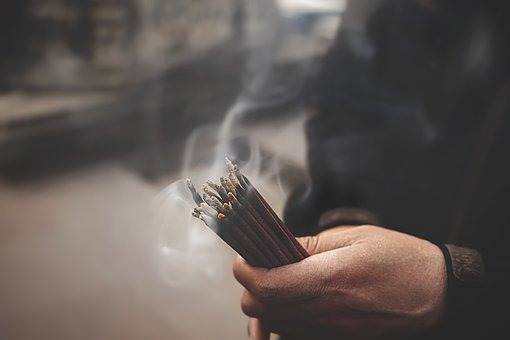A few weeks ago, the Italian church information portal settimananews.it published an extensive report titled “Little Bethany. A home for broken priests”.
It is a residence for priests with problems in the French town of Mesnil-Saint-Loup, a rural town in the Aube department, 25 kilometers west of the city of Troyes.
This house is intended for stays of recovery of priests and religious through medical, psychological and psychiatric treatmentslife in common, prayer, participation in services and care of the house and the environment.
Direct support of Pope Francis
Given the increase in this type of problem in Spanish diocesan priests -religious usually have specific projects in their Congregation for this type of problem-, the bishops have expressed their support for the Brotherhood of Diocesan Operative Priests which has launched a similar project, the “Mosén Sol” residence located in the municipality of Las Alquerías del Niño Perdido, in Castellón.
A residence, managed by the Brotherhood of Diocesan Operative Priests, which, as you may have learned Confidential Religionhas the direct support of Pope Francis -that he has invited a priest or bishop to stay there-, and that he is under the supervision of the Episcopal Commission of the Clergy of the Spanish Episcopal Conference.
This initiative has been communicated to all the Spanish bishops. There have been several and those who have come to learn about the project. Some have even invited a diocesan priest to participate in it.
Inaugurated by the Bishop of Castellón
Not much public information exists about this project that inaugurated by the Bishop of Castellón, Monsignor Casimiro López Llorentein the month of January 2020. Discretion is a necessary condition not only for the bishops and priests who enter there but for the viability of the project.
Confidential Religion has been able to gather information on this initiative, which has been successful since the first months of its operation. To guarantee this necessary discretion, no personal reference to the sources with whom we have spoken is offered.
As said in the Web page of the Diocesan Operators“the project has a team of three workers that guarantees the community and fraternal life of the residence and coordinates the work of a group of professionals who attend to all dimensions of the person.”
That the priests feel heard
The director of the House is Diocesan Operator Father Emilio Lavaniegos, reluctant to make statements to the media. He commented on the day the project was inaugurated that they wanted the priests who went there to feel “heard and could really speak, as this helps a lot. For this we have the professional support of psychologists and other professionals”.
In the only known interview with COPE, Fr. Emilio insisted that both in married life and in priestly life there are times when help is needed. “From the residence, a personal job is offered that lasts 6 months in which the priest separates from his ministry and then resumes it. Afterwards, an accompaniment is offered for three years. The most valuable thing that we can offer as a Brotherhood – he has emphasized – is a community that welcomes fraternally. We also have a team made up mainly of psychologists and doctors, ”he added.
The loneliness of the priest
He recalled that the The main difficulties of priests have to do in many cases with their way of managing loneliness. He also insisted, referring to the words of Pope Francis, that there are many priests who work faithfully and that “a tree that falls makes a lot of noise, but without trees that grow there would be no noise.”
At present, a dozen residents with very diverse problems participate in life in this residence, from pathologies of a psychological nature to addictions of a very diverse nature.
The priests who enter there have the support of the bishop, who is responsible for monitoring the resident. Some Spanish bishop is doing it personally, others through a vicar or person entrusted for that matter.
Three stages in recovery
According to someone who knows about the project, the residence has a medical team made up of doctors, both general and specialized care, nursing and psychologist, to care for the priests.
The care and recovery program has three stages: comprehensive assessment of the personal situation, prolonged stay of six months, and follow-up of up to three years.
The team of working priests of the Mosen Sol Residence offer a personal accompaniment service in which He takes particular care of the priestly vocation with an intense spiritual life.
In the brochure presenting the project sent to the Spanish bishops, the fundamental ratio of the priesthood to remember that “the priest not only learns to know Christ, but also, under the action of the Holy Spirit, is in a process of gradual and continuous configuration with Him, in his being and in his doing, which constitutes a permanent challenge of inner growth of the person”.
Clergy Commission Support
The Mosen Sol Residence, located next to the Monastery of the Sacred Heart of the Discalced Carmelites of Las Alquerías del Niño Perdido, was founded thanks to the working priest Jeremías Melchor. Since 1967 it was a house of spirituality for aspirants of the Operators, and from 1976 a residence for senior priests. It also hosted numerous diocesan groups until, in 2003, the team that maintained the house withdrew for reasons of age.
For this new stage, the reform of the residence was carried out from October to November 2020.
The Episcopal Commission of the Clergy It is made up of the bishops Joan Enric Vives, as president, Julián Barrio, Celso Morga, Francisco Cerro, Luis J. Argüello, Francisco Cases, Bernardo Álvarez, Gerardo Melgar, Eusebio Hernández Sola, Francisco Jesús Orozco, Salvador Cristau, Sebastián Chico and Fernando Valera. The latter manifests a particular sensitivity and follow-up care on the progress of this project.

